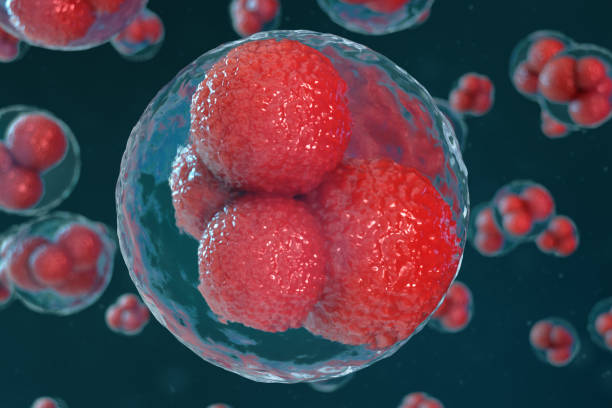For more than a century, aspirin has been a household remedy—taken to ease headaches, reduce fever, or protect against heart attacks. But now, in a groundbreaking clinical trial led by Swedish researchers, this humble pill is revealing a new, life-saving potential: dramatically reducing the risk of cancer coming back after surgery in certain patients with colorectal cancer.
Every year, nearly two million people worldwide receive the devastating diagnosis of colorectal cancer. While surgery and modern treatments have improved survival rates, the disease still poses a deadly challenge. Between 20 and 40 percent of patients develop metastases—secondary tumors that spread to other organs—making the illness much harder to treat. For decades, doctors and patients alike have hoped for new ways to prevent recurrence and give survivors a better chance at long-term health.
The latest findings from the ALASCCA trial, conducted by a Swedish-led team at Karolinska Institutet and Karolinska University Hospital, may represent one of the most important breakthroughs yet.
A Genetic Key to Unlocking Treatment
The trial focused on patients whose tumors contained mutations in the PIK3 signaling pathway. These genes play a critical role in regulating how cells grow and divide. When mutations occur, the normal checks and balances of cell behavior are disrupted, often fueling uncontrolled growth that can lead to cancer. Around 40 percent of people with colorectal cancer carry such mutations, making them a large and clinically important subgroup.
For years, observational studies hinted that aspirin might lower cancer risk, but results were inconsistent, and no randomized trial had ever put the theory to the test. That gap is now closed. Involving more than 3,500 patients across 33 hospitals in Sweden, Norway, Denmark, and Finland, the ALASCCA trial was designed to provide clear answers.
Participants with the PIK3 mutation were randomly assigned to receive either 160 milligrams of aspirin daily or a placebo for three years following surgery. The results were striking: those who took aspirin had a 55 percent lower risk of cancer recurrence compared to the placebo group.
The Science Behind the Effect
So why would aspirin—a drug better known for soothing headaches—have such a powerful effect on cancer? Researchers believe the answer lies in the way aspirin acts on multiple levels within the body.
First, aspirin reduces inflammation, a process increasingly recognized as central to cancer development and progression. Chronic inflammation creates an environment that can help cancer cells thrive. By dampening this inflammatory response, aspirin may reduce the likelihood of cancer cells regaining a foothold after surgery.
Second, aspirin inhibits platelet function. Platelets, while essential for blood clotting, also interact with tumor cells in ways that promote their survival and spread. By disrupting this process, aspirin makes it harder for cancer cells to metastasize.
Finally, aspirin has been shown to interfere with cellular signaling pathways that tumors use to grow. Although researchers do not yet fully understand every molecular detail, the evidence strongly suggests that aspirin acts through several overlapping mechanisms, creating conditions far less favorable for cancer recurrence.
“This is a clear example of how we can use genetic information to personalize treatment and at the same time save both resources and suffering,” explained Professor Anna Martling, the first author of the study and senior consultant surgeon at Karolinska University Hospital.
A Step Toward Precision Medicine
The results of the ALASCCA trial are significant not only because of their clinical impact but also because they illustrate the promise of precision medicine. Rather than giving every patient the same treatment, precision medicine tailors therapy to the unique genetic profile of each individual’s cancer.
In this case, aspirin does not benefit all patients equally—but for those with a PIK3 mutation, the effect is profound. This personalized approach marks a shift from the “one-size-fits-all” model of the past toward treatments that are smarter, more targeted, and more effective.
Global Impact and Accessibility
One of the most exciting aspects of this discovery is its accessibility. Unlike many modern cancer drugs, which can be prohibitively expensive and limited in availability, aspirin is widely available and extremely inexpensive. This could make the treatment accessible to patients across the globe, from the most advanced healthcare systems to resource-limited settings.
Professor Martling emphasized this advantage, noting: “Aspirin is a drug that is readily available globally and extremely inexpensive compared to many modern cancer drugs, which is very positive.”
If incorporated into treatment guidelines worldwide, the findings could help countless patients, reducing recurrence rates and improving survival without adding significant financial strain to healthcare systems.
Looking Ahead
The ALASCCA trial is a landmark moment in oncology, but it is also just the beginning. More research is needed to fully understand the molecular mechanisms at work, determine the long-term benefits, and explore whether similar effects might be seen in other types of cancer.
Still, the results already offer hope to millions. They suggest that sometimes, innovation doesn’t always mean inventing something entirely new. It can also mean discovering new uses for old medicines—reimagining a familiar pill as a tool against one of the world’s deadliest diseases.
For patients with colorectal cancer and their families, this is more than a scientific achievement. It is a message of hope: that even in the face of a daunting diagnosis, science continues to uncover new paths forward. And sometimes, those paths begin with the simplest of medicines—ones that have been sitting in our cupboards all along.
More information: Anna Martling et al, Low-Dose Aspirin for PI3K-Altered Localized Colorectal Cancer, New England Journal of Medicine (2025). DOI: 10.1056/NEJMoa2504650






